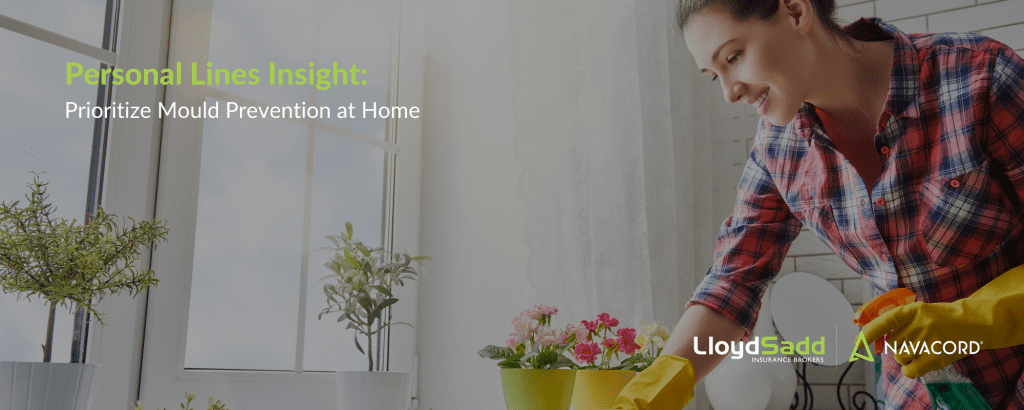Prioritize Mould Prevention at Home

Mould is a fungus caused by excess moisture that can be damaging to your home, as well as a significant health hazard.
Mould can look like spots and can be many different colours. If you see or smell it, remove it; you don’t need to know what type of mould it is. You just need to get rid of the mould and fix the moisture problem that is causing it.
To prevent mould occurrences in your home, you should:
- Keep healthy humidity levels. Mould thrives in humid environments, so it is important to keep humidity levels as low as you can—between 30 and 50 per cent. An air conditioner or dehumidifier can help keep levels low and should be used during humid months.
- Make sure your home has enough ventilation. Use exhaust fans that vent to the outside of your home in the kitchen and bathroom. In addition, make sure clothes dryers vent to the outside of your home as well.
- Fix any leaks. Leaks in your home’s roof, walls or plumbing can cause mould to grow, so it is important to repair any plumbing leaks or water issues in order to remove potential sources of moisture.
- Do not use carpet in certain areas. Do not use carpet in areas where there is a lot of moisture in your home—such as bathrooms or the basement. Also, don’t leave wet clothing or towels out too long; it is difficult to clean material that has been compromised by mould.
- Talk with an HVAC professional. Whether it be an attic fan or dehumidification system, an HVAC professional can recommend what you need to control the humidity levels in your home.
- Keep household products for cleaning. A variety of over-the-counter products are available for mould removal. It is a good idea to keep some on hand to take care of any necessary cleanups.
Mould can be hazardous, and you do not want it in your home. However, there are many resources that can help eliminate this common problem.
Contact us today to further discuss which hazards are covered under your homeowners insurance policy.
Click here to download the insight: Prioritize Mould Prevention at Home